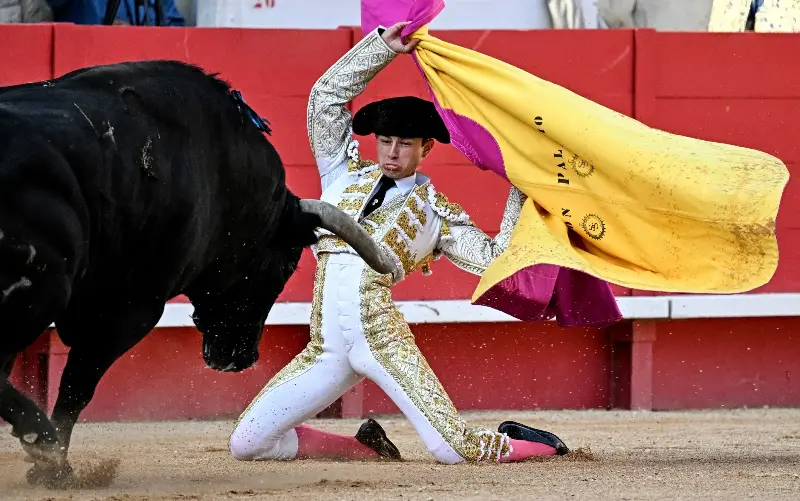
Bullfighting is to Spaniards what Brexit is to the British: unthinkable to outsiders, more popular among older, less educated sectors of society and expressive in an inexplicable way of the psyche of the nation.
This week saw the sudden retirement of an immensely popular matador, the Nigel Farage of bullfighting, called Morante de la Puebla. In Madrid’s Las Ventas bullring, which has room for 23,000 spectators, he cut off his queue, the traditional dangling lock of hair at the nape of the neck.
Cutting off the queue signifies retirement. The queue is archaic. It used to be plaited into a bun called a moña until this was superseded by an artificial knot called a castañeta.
Such archaic survivals go with very formalised proceedings, such as we see in court in this country, or at the State Opening of Parliament, with strange officials wearing stranger outfits. The matador wears a funny hat and an extravagant, bright suit. The only sensible part of his gear are the shoes, which have to be reliable when the bull charges.
So bullfighting is a ritual ceremony, not a sport. Indeed reports of bullfights do not appear on the sports pages of Spanish newspapers but on the culture pages. The Spanish minister of culture, Ernest Urtasun, does not like bullfighting. He is a Catalan, a former MEP and a Green Lefty, so one would not expect him to. He succeeded in persuading Unesco not to list bullfighting as Intangible Cultural Heritage in Need of Urgent Safeguarding.
Being on such lists is important to bureaucratically-minded politicians. I think that France got the whole of its gastronomy put on the Unesco list. Last time I looked, not a single aspect of British life was among the bits of cultural heritage, such as Turkish oil wrestling or the Peruvian scissor dance, favoured by Unesco.
If one cares about such lists, bullfighting should be on them, because it is hammered into Spanish society like a peg in a mortice and tenon joint. I have never been to a bullfight. I know I would not like it. But it is noticeable that the bars that have black and white photographs of pale matadors from the mid 20th century are the bars with the best atmosphere.
I remember taking shelter from the rain in a bar puzzlingly called El Sanatorio in the Plaza Mayor of the lovely walled town of Ciudad Rodrigo, in the middle of nowhere in Extremadura. Bullfighting was on the television, and at the same time Bob Marley’s Redemption Song was playing. Everyone inside was engaged in lively conversation about other topics.
I found out that El Sanatorio used to be the place where stricken bullfighters were tended when the square was used as a bullring, as it still is sometimes.
In England there are different signs of a good pub, quite distinct from photos of bullfighters. But if we were looking for a pastime that defines Britain, it is, I think, gardening. It is done by millions, organically – I mean integrated into life without a box-ticking list of procedures.
Gardening is practical private property. We may not own a castle, but we lay claim to a bit of earth. It is specifically British in the way it is done. If the Ernest Urtasuns of this world come for our culture, it’ll be gardening they attack. Our compost heaps won’t be Green enough perhaps. So gardening is Britain’s bullfighting, and not half so weird.
